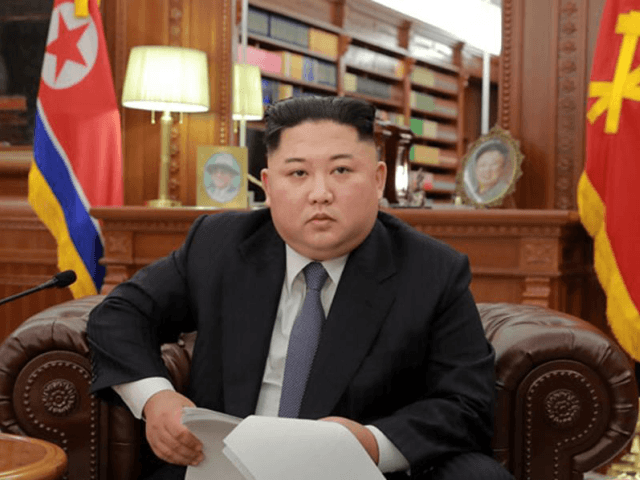The United Nations Security Council accused North Korea of benefitting greatly from a “massive increase in illegal ship-to-ship transfers of petroleum products and coal,” a violation of international sanctions, in a recent report, the South Korean newspaper Chosun Ilbo reported Friday.
Chosun notes that the Security Council enlisted a panel of experts to draft the report on how effective the current sanctions regime on North Korea – the strictest in its history – has been in limiting the communist regime’s ability to function economically. The sanctions are meant to prevent North Korea from funneling lavish amounts of money into the personal wealth of the Kim family and its illegal nuclear weapons program.
The Council found that North Korea was able to cushion the impact of the sanctions by working with 160 international companies who helped transfer North Korean fuel from ship to ship for sales, typically in the high seas in attempts to avoid detection. Chosun listed “major companies, U.S. and Singaporean banks, and a British insurance company” as among the culprits but did not name any company in particular. The report concluded that North Korea shipped over $5 million in coal and gas through this method to the companies involved.
The report also listed evidence that North Korea has worked to protect the assets of its illegal nuclear program, even as dictator Kim Jong-un promises to participate in a total “denuclearization of the Korean peninsula.”
Voice of America – identifying the Security Council report as a confidential one initially leaked to Reuters – relays that the experts writing it said North Korea was hiding some of its military assets in nominally civilian locations. For example, it accuses North Korea of building ballistic missiles at commercial airports rather than at the known missile development sites. The report also claims North Korea profits from selling “a wide range of military equipment to armed groups and governments in the Middle East and Africa.”
North Korea’s closest allies in those regions are Iran and the Bashar al-Assad regime in Syria, though it also maintains friendly relations with many of Africa’s most repressive dictatorships. Its two most important benefactors, however, are the governments of China and Russia, both of whom have faced accusations of aiding the regime with evading sanctions. In September, a report citing U.S. intelligence revealed that trade between China and North Korea had boomed since a temporary dip following the sanctions imposition. From smuggling basic goods and food in for trade to Chinese border towns to more large-scal trade in items like minerals and gasoline, the report indicated that China was making it possible for North Korea to survive the sanctions.
That same month, U.S. Ambassador to the United Nations Nikki Haley accused Russia of “cheating” on the sanctions and “helping North Korea illegally obtain fuel through transfers at sea.”
The revelation of this report follows the announcement Tuesday of a second summit between Kim and American President Donald Trump, this time aimed to discuss the denuclearization process. During their first summit in June 2018, the two signed a document agreeing generally to “denuclearization” but not specifically committing to any activities to achieve this. North Korea only vowed to return the remains of American soldiers killed in North Korea during the active period of the Korean War (1950-1953). As neither side signed a peace treaty, North Korea and America are still technically at war.
While President Trump announced his meeting with Kim, set to take place on February 27 in Vietnam, in his State of the Union address this week, North Korean state media have not mentioned the summit at all at press time. North Korean government media is the only legal media in the communist country, meaning North Koreans are not yet aware the summit will occur.
American special envoy for North Korea Stephen Biegun visited Pyongyang on Wednesday and Thursday for meetings to finalize logistics for the summit. Neither side has offered official descriptions of the talks. The Japanese outlet Nikkei Asian Review reported Friday that talks stalled as North Korea refused to accept a demand from Washington that the Kim regime produce a list of all of the assets it owns and maintains as part of its illegal nuclear program. In public, North Korean media has repeatedly insisted that “denuclearization” to them is defined as the removal of all American troops from the Korean peninsula, as the U.S. is a nuclear power.

COMMENTS
Please let us know if you're having issues with commenting.